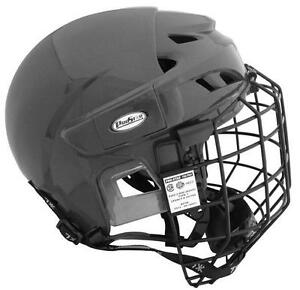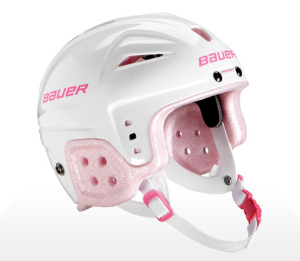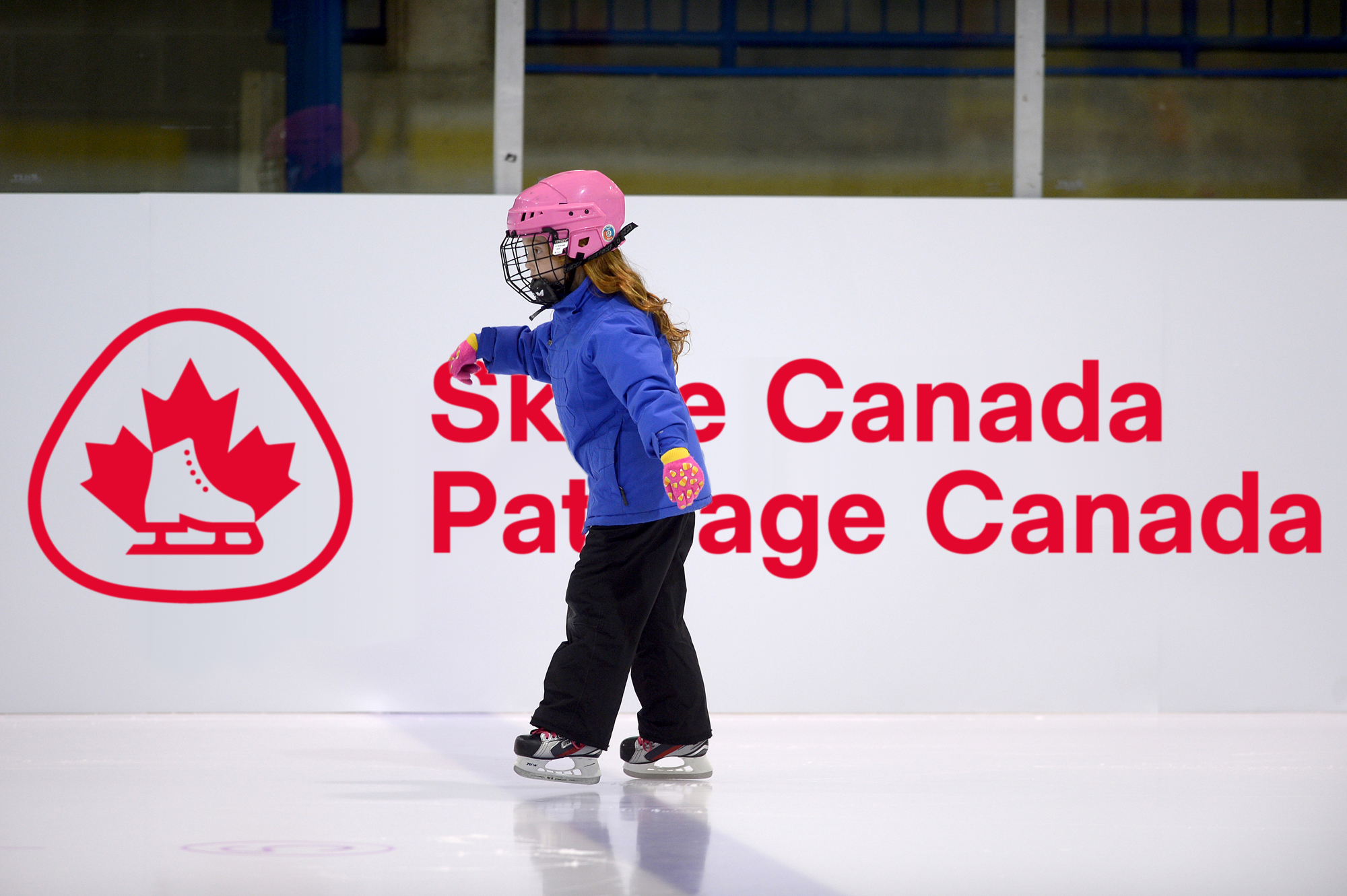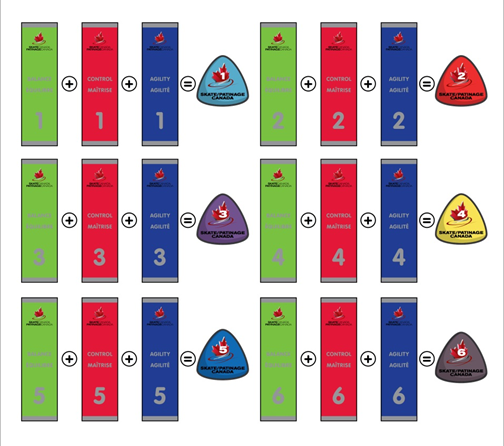CanSkate
CANSKATE is Skate Canada’s flagship learn to skate program, designed for beginners of all ages. CanSkate has a fresh new look and technical revisions include a renewed focus on teaching and mastering strong basic skills earlier to prepare skaters for all ice sports – hockey, ringette, speed skating and figure skating.
On-ice delivery focusing on continuous movement emphasizes the use of newer and more dynamic group teaching concepts including the Fast Track, Fun Zone and station rotation all of which has been proven to increase practice opportunities and improve the rate of skill acquisition among skaters. More visual aids and music are used to create a fun, stimulating and welcoming environment.
PROGRAMMING
The CanSkate Learn-to Skate program is divided into two sessions:
PreCanSkate AGES 3-5
CanSkate AGES 5+
FREQUENTLY ASKED QUESTIONS
What is CanSkate?
CanSkate is a dynamic learn-to-skate program that focuses on fun, participation and basic skill development. Based on Sport Canada’s long term athlete development (LTAD) principles, CanSkate centers on physical literacy and the fundamental skills needed to take part in any ice sport or to skate as a recreational activity.
Who’s it for?
For beginners of all ages, as well as for those wishing to improve their basic skills whether their focus be for figure skating, hockey, speed skating or just skating for fun.
Who teaches it?
Groups are led by a NCCP certified professional coach. Professional coaches are assisted by trained Program Assistants (volunteers). The coach/PA to student ratio is a maximum of 10:1. Skaters progress through the levels at their own rate.
Please make the coaching staff aware of your skater’s needs. Whether your skater wishes to develop skills for another sport or continue in the StarSkate program, our trained professional staff (NCCP certified) are qualified to help your skater reach his/her goals.
What will you learn?
A complete series of balance, control and agility skills taught in six stages of learning that pertain to hockey, ringette, speed skating and figure skating as well as general recreational skating. CanSkate uses nationally-tested and proven curriculum and delivery methods that guarantee skater success in developing stronger basic skills and developing them faster.
What can you expect?
Action, movement and fun! Lessons are given in a group format with a coach-to-student ratio of a maximum 1:10. Skaters progress at their own rate and coaches make sessions active using teaching aids, upbeat music and a wide variety of activities that create a motivational environment and promote learning. Badges, ribbons and other incentives are used to benchmark skaters’ progress and reward effort and participation.
What do you need to participate?
All you need are skates, a CSA-approved hockey helmet, long pants, mittens, warm sweater or jacket. Dress in layers – it will get warm!
★ Proper-fitting CSA-approved helmet. Look for the sticker! No bike or ski helmets allowed or the skater will not be allowed on the ice. We do not have extra helmets to provide. The helmet should be snug on the head and cover the forehead at least up to two fingers above the eyes. There should be a maximum of one finger space between the strap and the chin.
Face cages are optional but suggested for beginners who may need the extra protection.
 |
 |
 |
Skaters working on STAGE 6 or higher may choose to continue to wear a helmet at their discretion. The skater’s parents/guardians have the final say as to whether or not the skater will or will not wear a helmet.
★ Proper-fitting laced hockey or figure skates that provide lots of ankle support. Plastic skates are highly discouraged. Make sure the skates are sharpened before you step onto the ice and that they are dried after each session or else they could rust. Skate sharpening is usually recommended at least once per season depending on the skater’s level.
DO NOT walk on cement without blade guards.
★ Waterproof gloves or mittens, especially for Pre-CanSkate and CanSkate Stages 1-4.
★ Warm, layered clothing or splash pants that allow for easy movement.
Review this video to learn more about Skate Canada's CanSkate Program
What can I expect the first day of skating?
Can parents go on the ice with their children?
How do the CanSkate ribbons and badges work?
What do the coloured badge stickers mean?
What skating skills are assessed at each CanSkate level?
How do I tie my child's skates?
Skates must be properly sized, sharpened, and tied snugly.
- Begin by loosening laces halfway down so your child’s foot can slide in easily. The heel should sit flat and toes shouldn’t touch the end of the skate.
- Starting at the toe, pull each crisscrossed lace so the skate feels snug, but your child can still wiggle their toes. Hockey skates can be looser at the toes, but figure skates should be snug throughout.
- For hockey skates, lace up to the top holes and tie with a bow. For figure skates, cross laces and loop around the eyelets, pulling as you go. Tie at the top.
- Have your child stand, then check to make sure that ankles are well supported. Blades should not be angled
My Child is having a difficult time learning to skate. What should I do?
Not all children feel comfortable on the ice right away. Experienced skaters can make skating look easy, but parents should remember that ice is hard and extremely slippery, and it may take several sessions before your child settles into skating. Skating lessons are a fun and exciting way for young children to learn life skills such as overcoming challenges. Our Skate Canada certified professional coaches are fun and enthusiastic individuals who are committed to providing quality skating programs for our members. They are skilled in alleviating skaters' fears, but parents can help by telling their children that learning to skate is challenging, but with perseverance, everyone can learn to skate.
With patience, continued effort, and parental encouragement, your child will go from sitting to standing, and then to walking on ice. Soon they will be gliding across the ice with a smile of accomplishment on their face!
How often do skates need to be sharpened?
Blades should be sharpened when they lose their ability to grip the ice and slide sideways too easily. The time between sharpenings varies considerably depending on the quality of the blade, how you skate, and how you care for your blades. For example, walking on concrete without blade guards will make it necessary to sharpen your blades immediately. But as a general guide properly maintained high-quality figure skate blades should be sharpened after about 20-30 hours of use. Blades made of softer steel likely require more frequent sharpening.
Figure skate blades should only be sharpened by a skilled person who understands the special requirements of figure skate blades.
What is the Skate Canada membership fee? Do I have to pay for it?
Skate Canada is the national sport organization for skating. As a Skate Canada sanctioned club, Zorra Skating Club must register all skaters with Skate Canada. The membership fee covers the period from September 1 to August 31.
Once you have paid the annual membership fee in one season (e.g., fall), you will not need to pay it again until September 1. Note that Skate Canada requires each skater to pay the membership fee within each September 1 to August 31 period; thus, depending on the time of year when you pay your membership fee, it may lapse before a 12-month period.
Are there strategies to help my child progress more quickly from CanSkate into StarSkate?
Skating is an early development sport, much like gymnastics and dance. Although people of all ages can learn to skate, younger skaters learn and progress more quickly.
Skaters with a desire to figure skate are encouraged to start as early as ages 3 to 5 and to wear figure skates (with a toepick) rather than hockey skates.
Progress is enhanced by skating at least twice per week.
Are private lessons available?
Maybe! If you feel your skaters need extra one-on-one attention, the club has freelance coaches that may be available and willing to help. The cost and payment for lessons would be between you and the coach. Check out our Coaches page to find a coach.
What happens after CanSkate?
After the skater completes Stage 6 of CanSkate, they have several options to choose from: they can join our STARSkate program as a competitive or recreational figure skater, or participate in other sports such as hockey or speed skating. By completing the CanSkate program, skaters will have learned skills to carry forward for the rest of their lives regardless of which path they choose to take.
Learn more about our STARSkate program here.
What are Program Assistants?
Program assistants (PAs) are individuals who help coaches deliver the CanSkate or
CanPower program. Program assistants may be current skaters at the club, former skaters or skaters from other sports (hockey, ringette, speed skating, etc.)
Interested in learning more, or how you can get involved? See our program section here to learn more.


